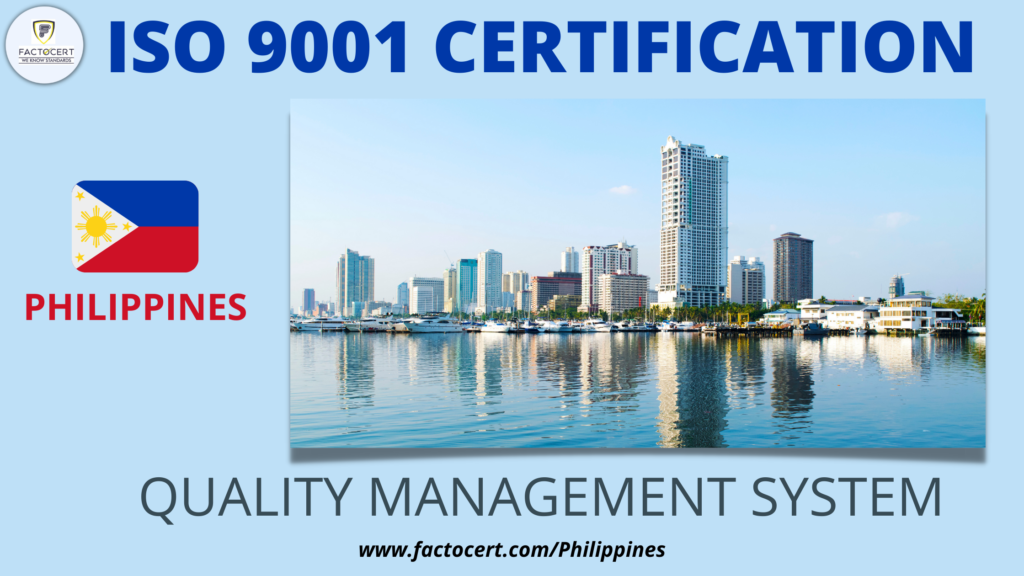What is the ISO 9001 Certification in the Philippines?
ISO 9001 Certification in the Philippines is also called the Quality Management System, which large corporations and small companies use to improve the quality of their products and services. The ISO 9001 Certification implies that the company follows strict top-quality processes to test the products or services.
Following are the steps to get ISO 9001 Certification in the Philippines:
Step 1: Preparation :
The first step concerns the process required to obtain ISO 9001 certification in the Philippines at your small or mid-sized company, including deciding the method you will implement. The quality of your preparation will impact the immediate performance of your certification project and the long-term viability of your QMS.
Important points to remember:
- Goal Setting
- Scope Definition
- Implementation Method
Step 2: Documentation:
Documentation writing is usually seen as the most challenging stage. It is because documents have to comply with the technical specifications in ISO 9001 Certification in the Philippines. ISO 9001 Certification, which many people find difficult to comprehend, interpret and use for their own company. However, it’s equally important to ensure that these documents are in good order because they have a direct impact on your business’s operations.
Step 3: Implementation:
In the implementation phase, you will present your procedure to the affected employees and help them adjust and improve their processes in line.
ISO 9001 implementation requires virtually everyone to change their work practices in a certain way (for instance, handling documents). To ensure that your Quality Management System works, you must have incentives to implement new procedures for work. Your new strategies must be effective as well as non-bureaucratic and user-friendly.
Step 4: Internal Audit and MRM
Audits conducted internally are self-inspection designed to verify that the ISO 9001 Certification in the Philippines is effectively implemented. The audit is conducted during which procedures are scrutinized, management and staff members interviewed, and records are analyzed. The aim is to confirm the compliance of the company to ISO 9001 Certification, including processes and working instructions. Internal audits are performed before certification and also periodically after.
Internal audits are typically conducted by employees who can assume the auditor’s role as an additional duty.
Step 5: Final Audit and Certification:
To obtain ISO 9001 certification in the Philippines, the company must undergo an audit for certification by an independent third-party auditor. The audit is comparable to your internal audits; however, the duration and amount of days for audits are controlled. After your business has successfully concluded the audit process and resolved any issues in a manner that is satisfactory to auditors, an ISO 9001 certification with 3-year validity is issued.
For the certificate audit to be completed, it is essential that your company conducts an entire internal audit and collect enough information that the auditor can review to ensure the efficiency of the quality control program and compliance with every ISO 9001 requirement.
About Factocert:
Factocert is an ISO Certification consultant that aids in adhering to the guidelines established by the international body to standardize their processes and aid the organization in the successful implementation of ISO certification in the Philippines with ease with the correct documentation and audit. For more information, visit www.factocert.com or write to us at Contact@factocert.com.





